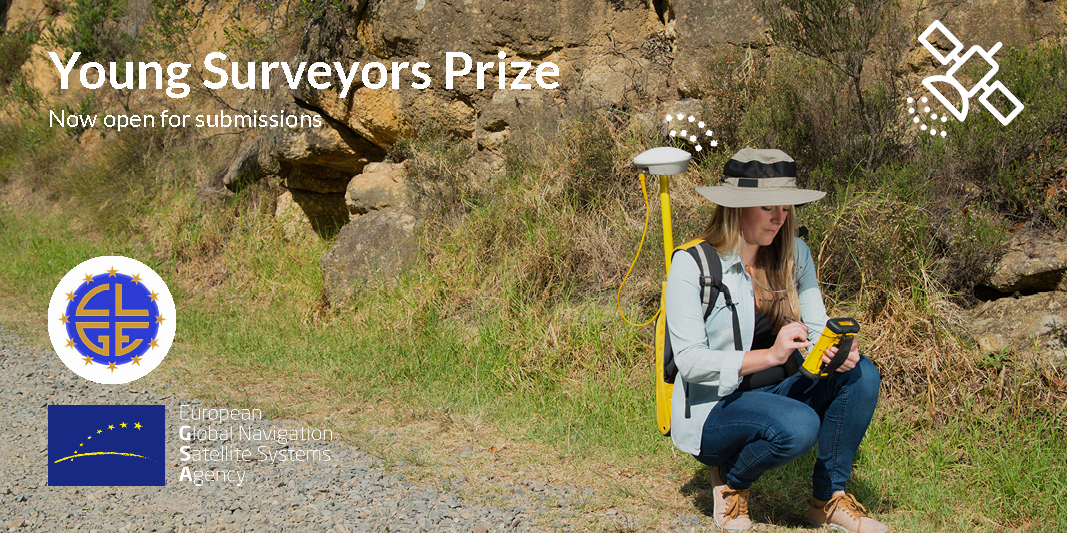The Council of European Geodetic Surveyors (CLGE) has launched the sixth edition of its Young Surveyors Prize, in which the European GNSS Agency (GSA) is again sponsoring a special prize dedicated to Galileo, EGNOS and Copernicus.
The 2017 edition of the Council of European Geodetic  Surveyors’ (CLGE) Young Surveyors prize is now open for submissions. The competition offers cash prizes of EUR 1 000 and, for the third year in succession, the GSA is sponsoring a special prize for entries that show a dedicated use of Galileo, the European Geostationary Navigation Overlay Service (EGNOS) or Copernicus.
Surveyors’ (CLGE) Young Surveyors prize is now open for submissions. The competition offers cash prizes of EUR 1 000 and, for the third year in succession, the GSA is sponsoring a special prize for entries that show a dedicated use of Galileo, the European Geostationary Navigation Overlay Service (EGNOS) or Copernicus.
There are four prize categories in total:
- Geodesy, Topography;
- Galileo, EGNOS, Copernicus (or a combination of two or all three);
- GIS, Mapping and Cadastre;
- Engagement of students and young people.
The contest is open to all Bachelor and Masters students in the surveying sector or a related field. PhD students are not currently eligible to participate, but CLGE is considering creating a new category aimed at this group. Eligible participants should submit their papers no later than 23:00 CET on 7 August 2017.
Last year’s winner
Last year’s winning entry came from Cecile Deprez from the University of Liege in Belgium. Cecile’s idea stems from Google’s decision to give Android users access to GNSS raw measurements, a move that could bring much greater precision to mass-market applications.
Furthermore, use of the Galileo E5 signal could, in theory, bring decimetre positioning precision into Android user applications. According to Cecile’s research, in general, Galileo signals are more precise than GPS alone.
GSA Prize details
Participants interested in the GSA special prize should submit proposals that include an academic paper describing the project and how it benefits from Galileo, EGNOS or Copernicus (or a combination on two or all three of these). Although papers may be an abridged version of a more complete thesis, the paper should describe the project in full, including its financial and logistical aspects. Papers should not exceed 4 000 words, including an abstract of 300 words, and must be written in English.
Submissions will be judged by a panel of CLGE delegates representing professional, academic and related sectors. The winning entry will receive an award worth EUR 1 000 as well as a CLGE certificate during a special ceremony to be held on 27 September 2017 during the INTERGEO event in Berlin, Germany.
For more information on how to apply please click here.
Sign up to GSA Today to receive updates on the next contest.
Media note: This feature can be republished without charge provided the European GNSS Agency (GSA) is acknowledged as the source at the top or the bottom of the story. You must request permission before you use any of the photographs on the site. If you republish, we would be grateful if you could link back to the GSA website (http://www.gsa.europa.eu).